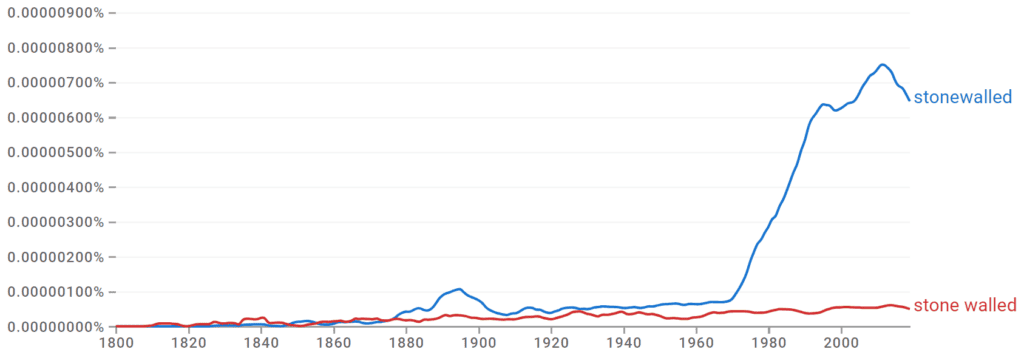Have you ever been stonewalled? Or maybe you’ve been the one who stonewalled others and didn’t even know it. Either way, it’s important to understand the meanings behind words such as this. So, I’ll break down the info and share a few sentence examples to teach you how to use the word stonewall.
What Is the Stonewall Saying?
When you hear the term stonewall, it probably evokes images of solid rock barriers or sturdy ramparts made of rough stones. But as a saying, stonewall carries a different meaning. In English, to stonewall means to delay or obstruct by refusing to answer questions or by giving evasive replies, especially in politics. But the practice is seen in various corners of society.
Stonewall Meaning Explained

Let’s get a bit more specific. Stonewall is a verb that describes the act of preventing progress or stalling intentionally. It could be used in a bunch of different contexts, like negotiations, investigations or any scenario where forward movement is deliberately hampered.
This can be for both good and bad reasons, too. Maybe you’re stonewalling people from delicate information to protect someone. Or maybe you’re doing it to cover up heinous crimes.
In a simpler, less threatening context, stonewalling happens in indie book publishing all the time. Experienced indie authors purposely prevent helpful tips and information from being made common knowledge to new and aspiring authors. It’s gatekeeping at its finest.
Stonewalled or Stone Walled: One Word or Two?

It’s meant to be stonewalled as a single word when you use it as a verb to mean deliberately blocking or delaying. But when you’re referring to a literal wall made of stone, it’s two separate words—stone walled.
Origin and Etymology of Stonewall
The term stonewall comes from the sport of cricket in the late 19th century, referring to a defensive play style. It gained its political connotations in the 20th century, especially in the U.S., where it has been widely used to describe evasive tactics in politics and war.
Interestingly, an American general, Thomas Jackson, earned the nickname Stonewall Jackson during the Civil War. At the Battle of Bull Run, he rushed into a break in the line and held his ground, whereupon General Bee observed, “Look, men, there is Jackson standing like a stone wall!”
Synonyms for Stonewall
Now let’s look at some alternatives to this term if stonewall doesn’t quite fit the vibe you’re going for.
- Obstruct
- Stall
- Hinder
- Block
- Thwart
- Hamper
- Impede
Stonewall Examples in a Sentence

Let’s illustrate how stonewall is used in everyday language with a list of sentence examples showing how to apply it.
- Our competitor company has been accused of stonewalling the investigation into their financial misconduct.
- He was just stonewalling when we asked him about the details of the project he was working on.
- The agents tried to stonewall the journalists by refusing to answer their questions about what happened.
- Jane accused Mark of stonewalling to avoid discussing the issue of his cheating.
- The cricket players suspected the other team of stonewalling to gain a strategic advantage.
The Art of the Stonewall
So, whether you’re navigating the labyrinth of political debates or trying to decipher the tactics in a corporate boardroom, the term stonewall is a handy phrase for us all to understand. But let’s hope you encounter it more in literature than in practice. I’ve got a ton of quick and easy guides to other terms like this, so check them out and load up your vocabulary.
